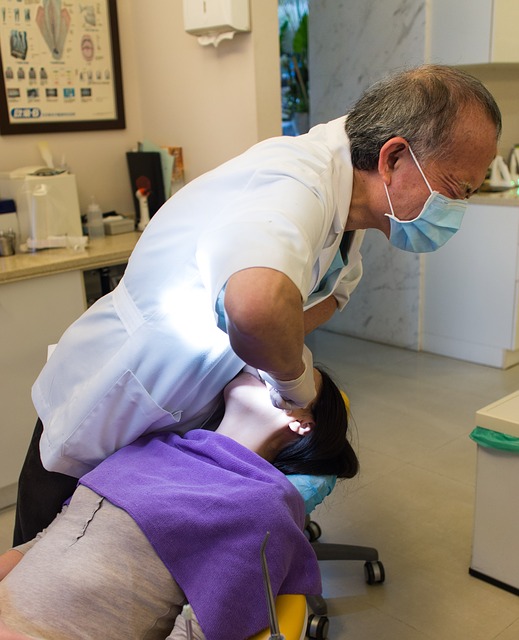An intriguing long form piece appears in the May 2019 issue in Atlantic titled “The Truth About Dentistry: It’s much less scientific—and more prone to gratuitous procedures—than you may think,” written by Ferris Jabr, see https://www.theatlantic.com/magazine/archive/2019/05/the-trouble-with-dentistry/586039/. This article has a lot of people talking including dentists, physicians, and patients who have experience with dentists throughout the Internet on forums and Twitter (see https://www.whitecoatinvestor.com/forums/topic/the-truth-about-dentistry-critical-longform-piece-in-the-atlantic/). The main shortcoming with this article in the Atlantic is it relies on an anecdotal story which forms the basis of the entire article. There are several themes to the article that will be discussed below along with additional themes not mentioned that are involved to form the real truth about dentistry.
1. Dentistry is a Business and some Dentists, just like in other Professions, are Bad Apples.
The article describes a dentist Lund who overtreats patients by performing more expensive procedures that are not necessary in order for him to make more money and does this for many many years. Dentist Lund’s way of making extra money is by having patients with cavities receive root canals with incision and drainage when cavities are the proper treatment.
“Years ago, at a routine dental cleaning, the wife was diagnosed with 18 asymptomatic ‘small cavities’ that needed to be fixed. So we got a 2nd opinion, lo and behold, no cavities. Somebody apparently needed a new boat.” – portlandia via whitecoatinvestor.com
2. There is a Unique Power Dynamic in Dentistry that is Unlike Other Relationships
Many aspects of the dental experience have resemblances to torture experiences. When a dentist is standing over a patient inserting sharp instruments into their mouth they often feel powerless. Perhaps because of this the vast majority of patients who see a dentist do not get a second opinion from another dentist. This is unlike medical doctor visits where seeing a second doctor for another opinion is more commonplace. Furthermore the vast majority of patients are not reading medical and dental literature on their own and discussing it with their dentists if there were any disagreements.

3. Dentists Have very Little Checks and Balances on Their Practice
The article presents a story of a young dentist Zeidler who buys the practice of of retiring dentist Lund who had overtreated patients for years. After several months Zeidler suspects there is a problem because he was only making 10 to 25% of the prior dentist Lund’s reported income. Zeidler also encounters many of the patients of the practice and notices a large number of them have had more extensive treatment performed than needed. Zeidler spends nine month’s pooring over Lund’s patient records. The records demonstrate vast amounts of overtreatment. Thus the overtreatment by the dentist went unchecked for many many years and it was not until the dentist retired and the patients and records were seen by someone else that the overtreatment was detected. Most dentists have individual private practices which is unlike medical doctors who usually work for a hospital or organization with more oversight.
4. There is Little Scientific Evidence to Back Dental Treatments
The article discusses oral health studies performed by Cochrane which is a well respected evidence based medicine organization that conducts systematic reviews. Nearly all of the studies performed in the field of dentistry by Cochrane have shown either: 1) there is no evidence that the treatment works or 2) there is not enough evidence to say one way or the other that the treatment works. What to do in regards to dealing with healthy asymptotic wisdom teeth is one of these treatments in dentistry where there is a lack of scientific evidence to support either preventative removal or watchful waiting.
5. Dentists are Paid Based on Treatment and Not Prevention which is being made Worse Due to Large Student Loans
The reality is if everyone had healthy teeth and no need for dental treatment besides occasional cleanings, exams, and x-rays dentists would not make much money. The pay structure for dentists rewards procedures and treatments. Dentists today graduate from school with a large amount of debt and they also want to buy an individual practice to run. This can lead them in debt of well over $500,000 which can push them to recommend treatments and procedures that are not really needed to try to pay this debt off.
6. There is a Lack of Focus on Quality Improvement due to a Culture of Cover-Up
Everyone can agree that patients want high quality care at an affordable price. However dentists are hesitant to make real strides towards quality improvement due to fear of being sued and increased liability insurance premiums. Human error can never be completely eradicated and human nature is not perfect. Humans have varying anatomy that can’t always be anticipated. Thus protocols should be in place for dealing with things such as sexual assault in the dental office and to address what one should do when the wrong tooth is extracted. Similarly protocols should be in place to best identify what to look for on panoramic radiography to determine if a wisdom tooth is at high risk of damaging a nerve and if cone beam computed tomography or coronectomy should be performed. Similarly protocols should be in place when a sharp or needlestick injury occurs in the dental office. In addition protocols should be in place for when a dental instrument breaks and is left in a patient during a procedure. It seems that dentists could be sharing data with each other about what goes on in their practice and they could be addressing sensitive issues instead of pretending that they don’t and won’t again occur.

1 thought on “The Real Truth About Dentistry”